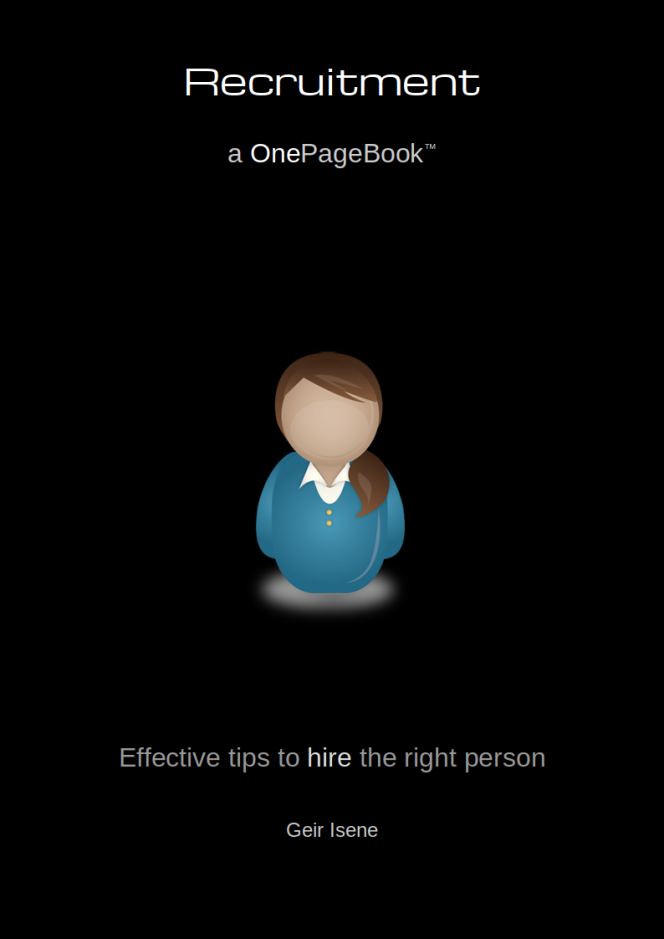After 8 years of heading a recruitment company I wrote the Interview Handbook. After another two years of daily interviews, I quit the company in order to cater for my inner nerd.
I then did 12 years in the IT business before Brendan and I started the comapny “Å” (A-Circle.no) in 2012.
Everything got simpler. And simpler. And simpler. To the point where I can now revisit my 10 years in the recruitment business and boil everything down to one page. So here it is, The OnePageBook, Recruitment:
“Do not hire a man who does your work for money, but him who does it for the love of it.” (Henry David Thoreau)








